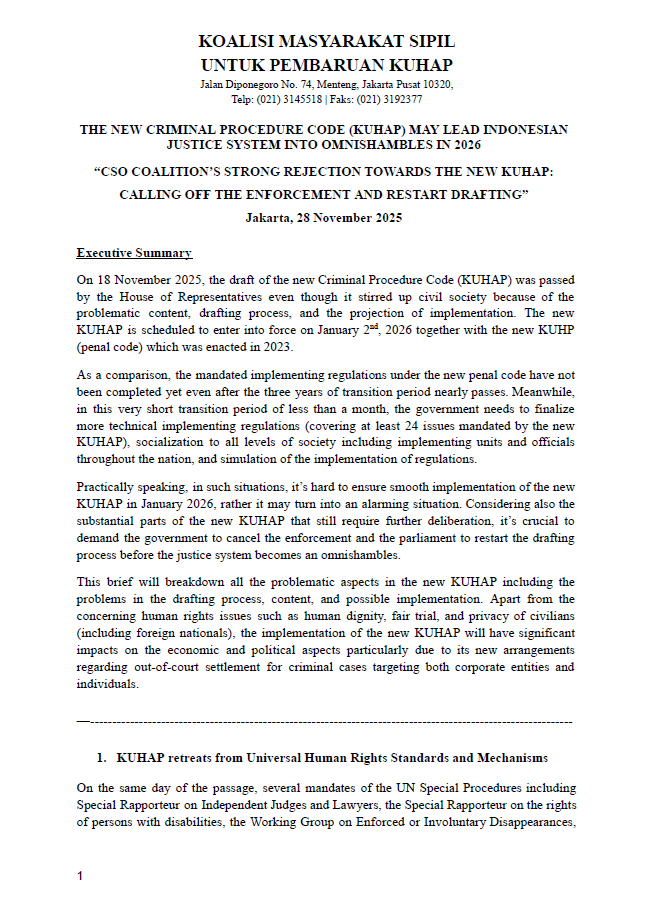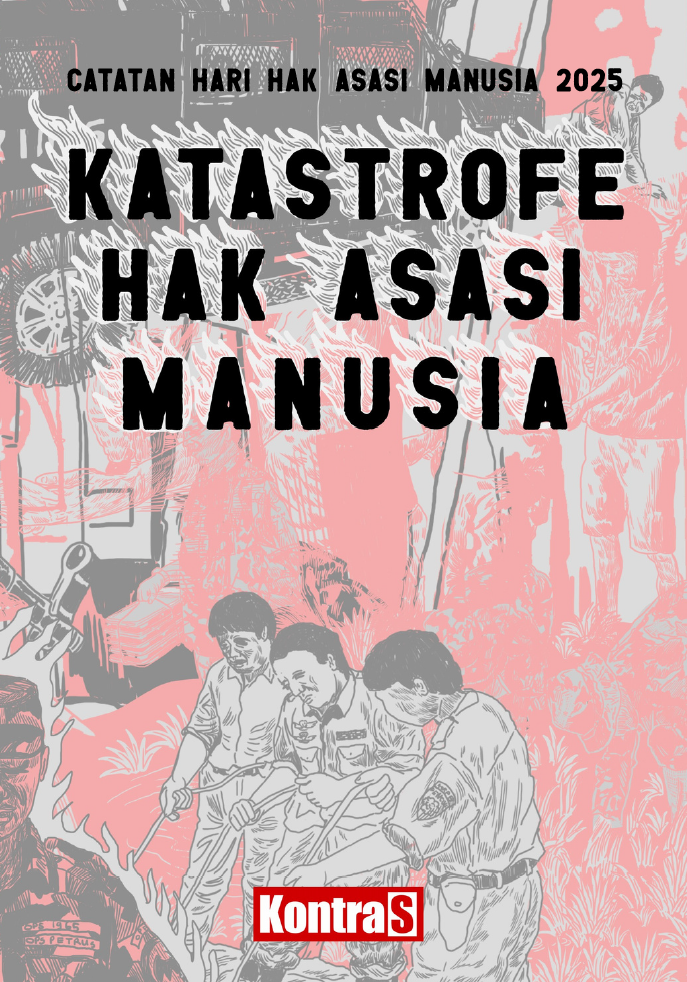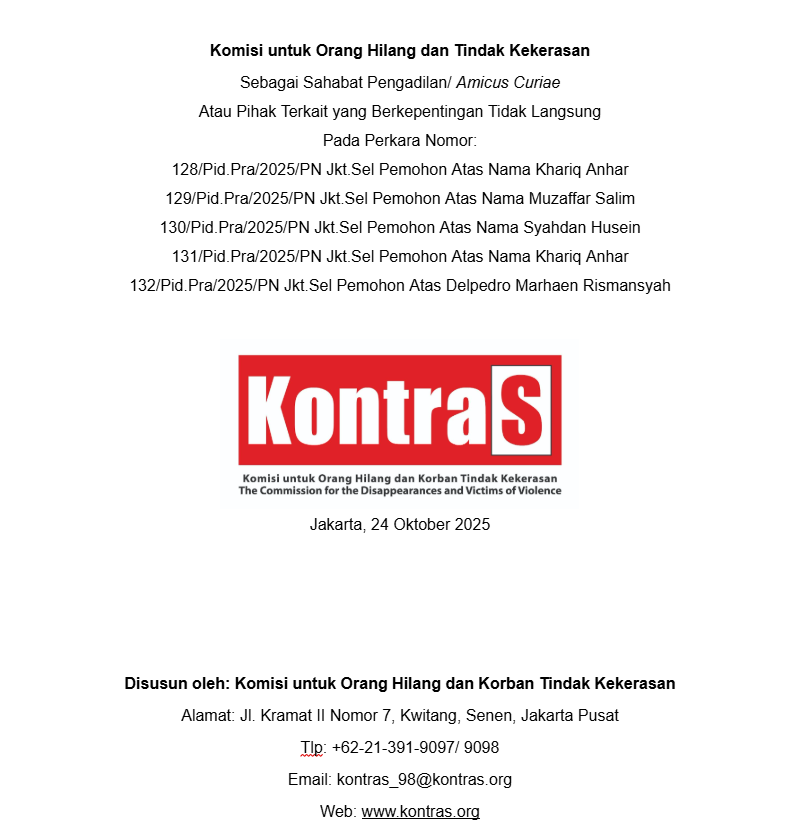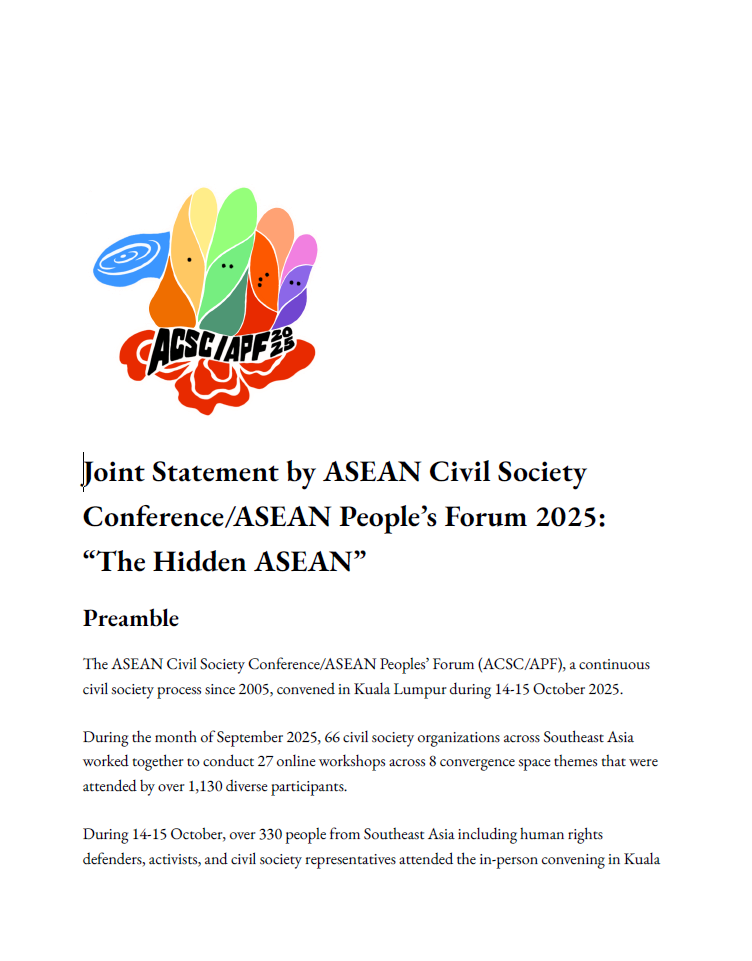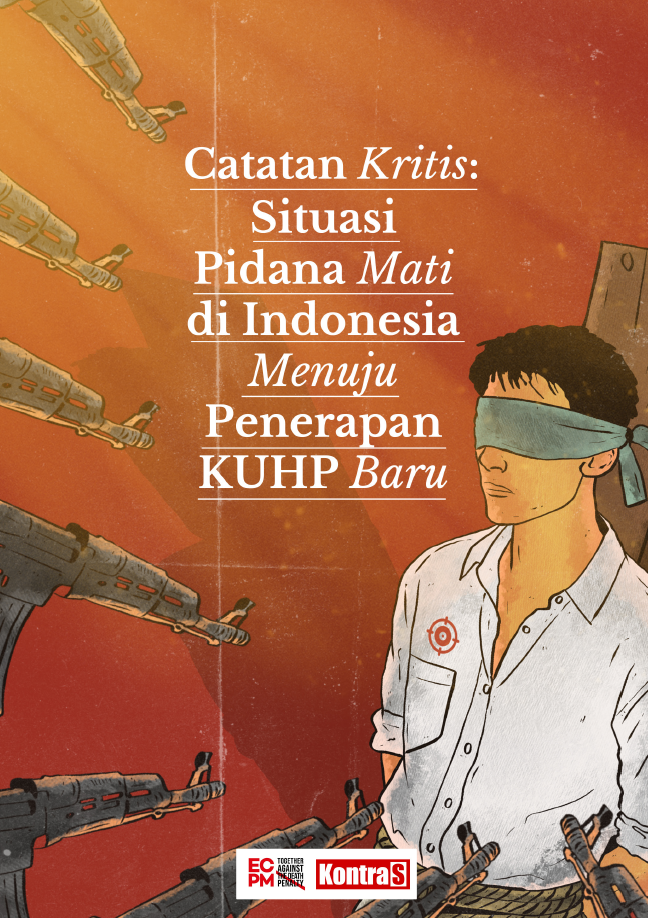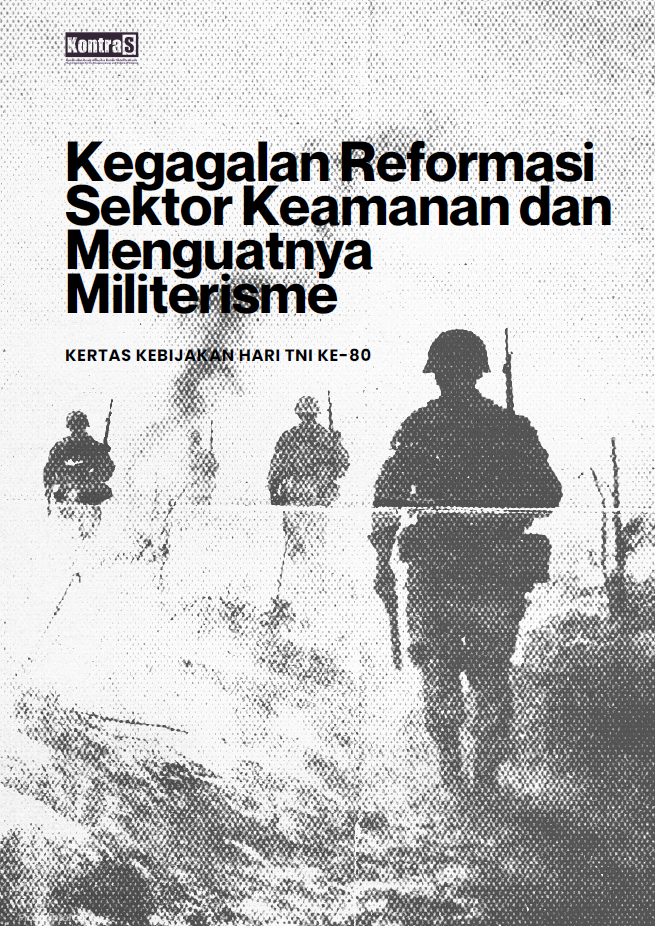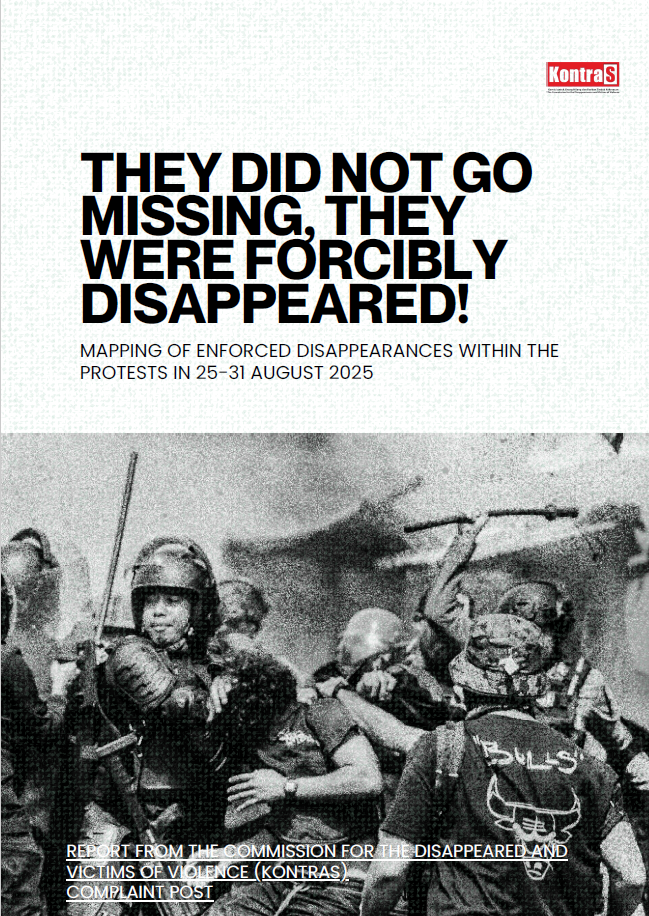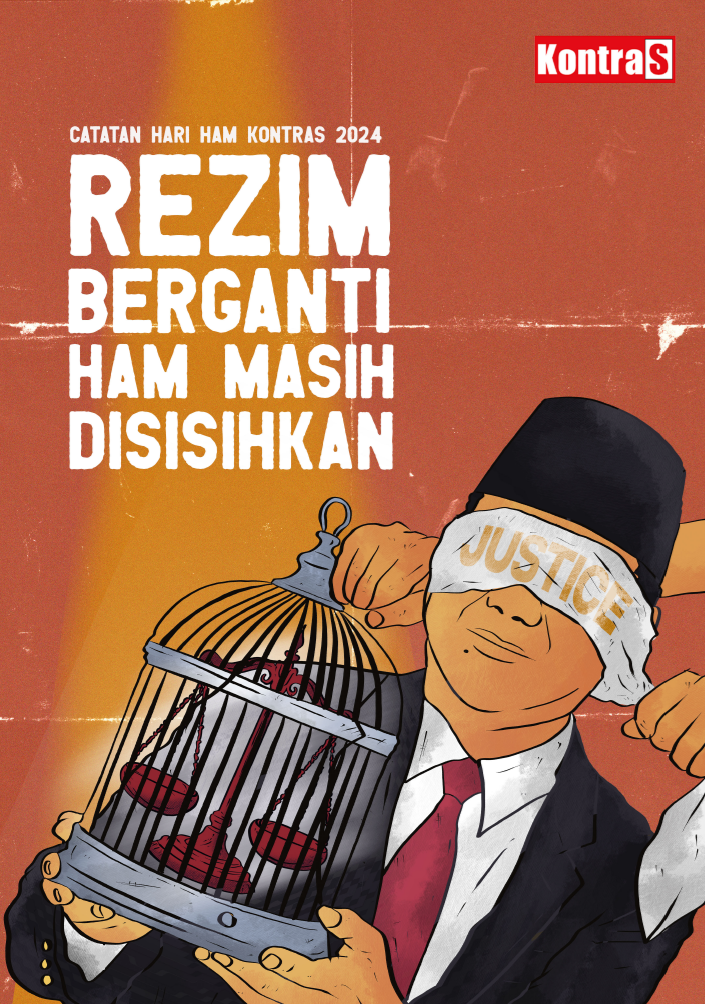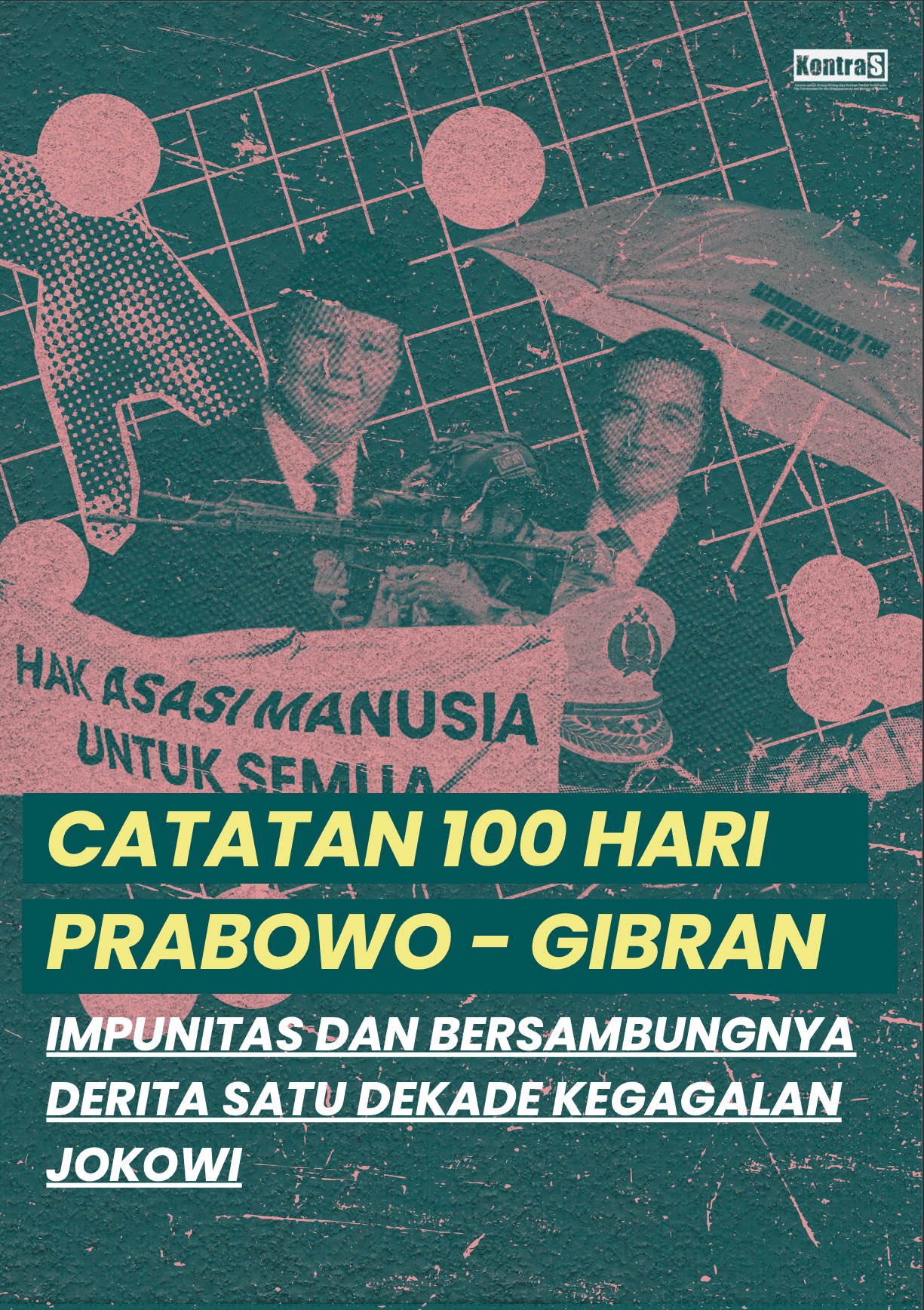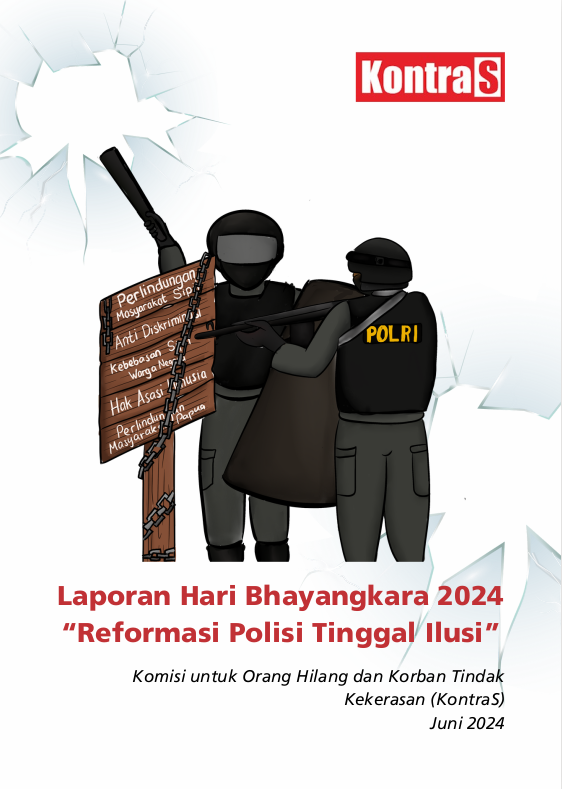On 18 November 2025, the draft of the new Criminal Procedure Code (KUHAP) was passed by the House of Representatives even though it stirred up civil society because of the problematic content, drafting process, and the projection of implementation. The new KUHAP is scheduled to enter into force on January 2nd, 2026 together with the new KUHP (penal code) which was enacted in 2023.
As a comparison, the mandated implementing regulations under the new penal code have not been completed yet even after the three years of transition period nearly passes. Meanwhile, in this very short transition period of less than a month, the government needs to finalize more technical implementing regulations (covering at least 24 issues mandated by the new KUHAP), socialization to all levels of society including implementing units and officials throughout the nation, and simulation of the implementation of regulations.
Practically speaking, in such situations, it’s hard to ensure smooth implementation of the new KUHAP in January 2026, rather it may turn into an alarming situation. Considering also the substantial parts of the new KUHAP that still require further deliberation, it’s crucial to demand the government to cancel the enforcement and the parliament to restart the drafting process before the justice system becomes an omnishambles.
This brief will breakdown all the problematic aspects in the new KUHAP including the problems in the drafting process, content, and possible implementation. Apart from the concerning human rights issues such as human dignity, fair trial, and privacy of civilians (including foreign nationals), the implementation of the new KUHAP will have significant impacts on the economic and political aspects particularly due to its new arrangements regarding out-of-court settlement for criminal cases targeting both corporate entities and individuals.
On 18 November 2025, the draft of the new Criminal Procedure Code (KUHAP) was passed by the House of Representatives even though it stirred up civil society because of the problematic content, drafting process, and the projection of implementation. The ne
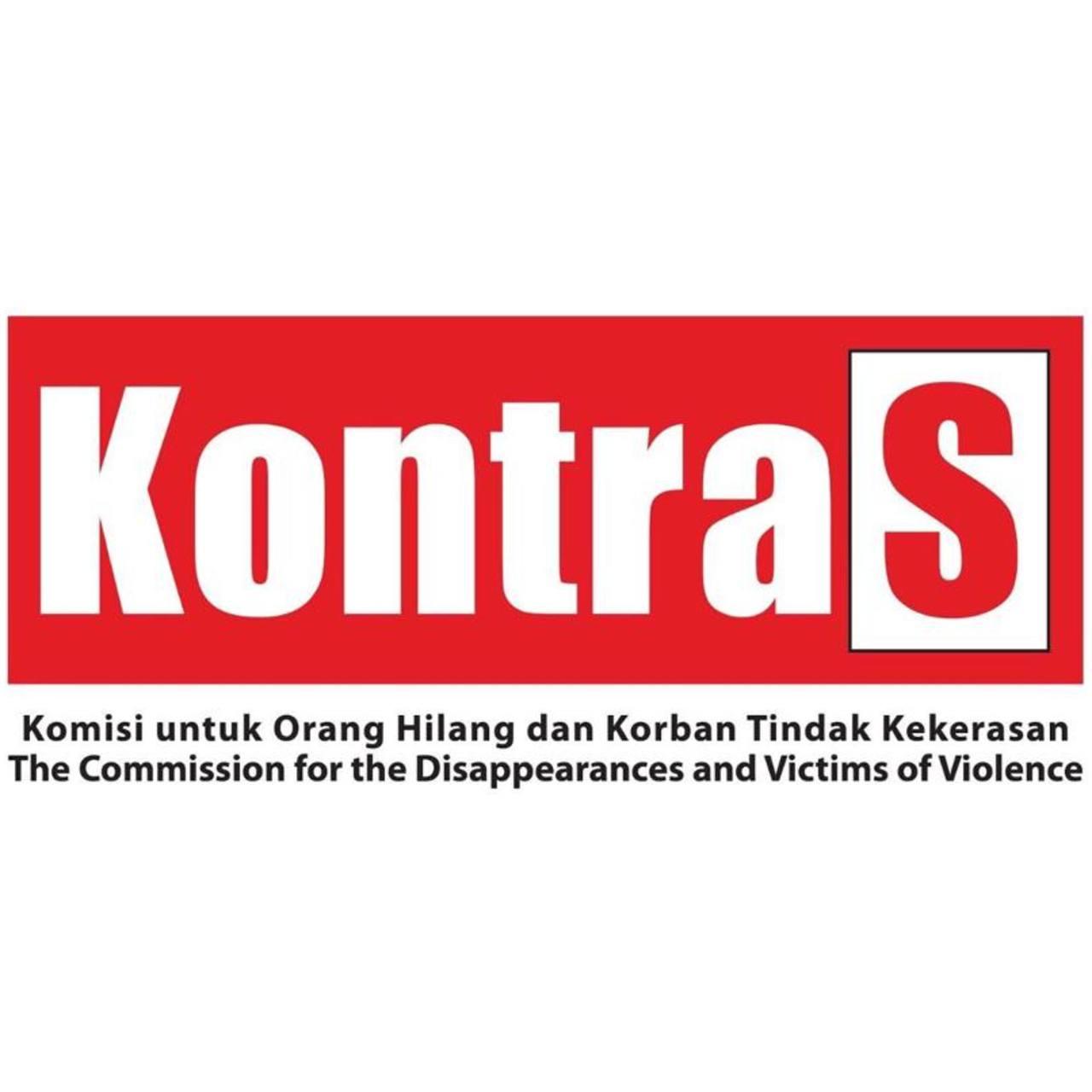
KontraS
Komisi Untuk Orang Hilang dan Korban Tindak Kekerasan

